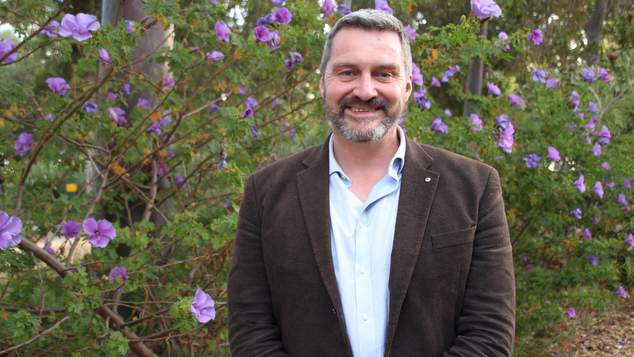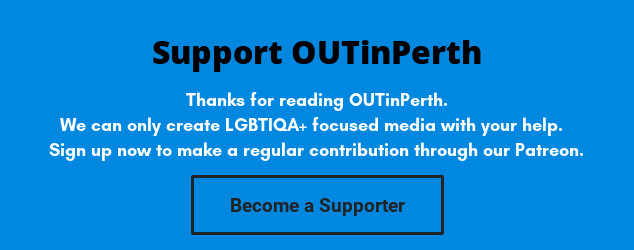
OPINION
A year on from the marriage equality postal survey it’s time to bust some myths about why it was held and what impact it had.
The postal survey was not necessary to win marriage equality.
It did not change hearts or minds for the better, carry parliament over the line or cement reform
It revealed as many weaknesses in the LGBTI community as it did strengths.
None of this diminishes the titanic efforts of those people who worked for a Yes vote.
I simply want some perspective.
Up until the Coalition adopted its policy of a plebiscite on marriage equality in August 2015, its response to protect LGBTI human rights was generally to allow a conscience vote.
In fact, the Coalition has traditionally allowed a conscience vote on a wide range of issues, far more than Labor.
It was only with the rise of the populist, authoritarian right within the Liberal Party that this tradition died, including on LGBTI rights.
The right proposed a plebiscite to head-off the push for a conscience vote and stymie marriage equality.
They believed they could generate enough fear and loathing to block change, and as I’ll explain directly, to a small extent they succeeded.
To acquiesce to a public vote, as Malcolm Turnbull and some advocates did, was to acquiesce to the dangerous new global populism.
Fortunately, the forces against this populism were strong enough to block the plebiscite proposal, and, as we predicted, the initiative returned to those Liberals who wanted the genuinely liberal solution of a conscience vote.
It was only because of Peter Dutton’s left-field postal survey proposal that this final conscience vote push failed.
Without Dutton’s plan we would likely have achieved marriage equality with a conscience vote in Parliament and without the damage the postal survey wrought.
The postal survey did not change hearts and minds for the better nor did it cement the reform.
When John Howard banned same-sex marriages in 2004 support for the reform was only 38%.
By 2014 popular support for marriage equality had doubled, rising to 72% according to the Liberal Party’s go-to research company Crosby/Texter.
By June 2015 a majority of MPs and senators were declared supporters of the reform.
This transformation was due to the hard work of many campaigners and legislators whose names are largely omitted from recent attempts at the history of marriage equality.
Yet, they were the ones who built the stage upon which politicians and celebrities strutted when Australia voted Yes.
They were the ones who ensured marriage equality was cemented and could never be reversed.
They were the ones who effectively won the postal survey years before it was a gleam in Peter Dutton’s eye.
The postal survey is often criticised, rightly, for the wounds it inflicted on LGBTI people.
But a less-noted result was a reduction in popular support for marriage equality, and LGBTI equality more broadly.
It gave anti-equality groups the biggest stage they ever had from which to broadcast the nastiest myths and raise the worst fears about LGBTI people.
The most graphic result of this fearmongering was in Western Sydney where support for marriage equality plummeted from around 50% before the postal survey to as low as 29%.
But levels of support nationally also fell, by more than 10% if we take the Crosby Texter result as our baseline.
It didn’t help that the Equality Campaign took a small target approach, failing to engage with resurgent prejudice about transgender rights, LGBTI issues in schools and “religious freedom”.
The Equality Campaign said it didn’t want to lose focus on marriage, but there are many historical examples of how anti-LGBTI prejudice can be tackled in a way that actually boosts the equality narrative.
Had the postal survey not given hate a megaphone, and had the Equality Campaign not shrunk from that hate, Australia would be much further down the path to inclusion for transgender people, and LGBTI young people and people of faith.
Consider Tasmania where the No case was relatively low key and advocates ran the most prominent local campaign in Australia, a campaign that included a measured response to the hate.
Tasmania, the oldest and most rural state, returned a vote well above the national average, and has moved ahead of the other states on school inclusion, transgender equality and protecting discrimination laws.
Tasmania shows where the nation could be if it wasn’t for the postal survey hate campaigns and the poor response of the Equality Campaign.
Of course, pro-equality defenders of the postal survey will say it achieved what it was intended to achieve, the passage of a marriage amendment with overwhelming support.
But as I’ve noted, we had reached majority support in parliament in mid 2015.
By the end of 2017 the majority would have been large and solid enough to pass reform without a postal survey.
It would certainly have been large enough to pass legislation without the “religious freedom” compromises pushed by the Equality Campaign, compromises that were neither required in former cross-party bills in Australia, nor in any marriage equality legislation passed overseas.
The weakness the postal survey exposed was the lack of connection between the LGBTI community and those who claim to speak for it.
The LGBTI community was against a public vote under any circumstances while the Equality Campaign equivocated.
The LGBTI community wanted a stronger response to hate while the Equality Campaign declined.
The LGBTI community said “no compromise” in the final legislation which the Equality Campaign ignored.
The postal survey showed Australia needs more democratic and transparent national LGBTI human rights organisations, the kind that exist in almost every other western nation.
I salute all those people who worked so hard to win a Yes vote.
But our efforts a year ago should not overshadow the efforts of those who went before.
Neither should they be used as an excuse to pink-wash the postal survey as some kind of transformative moment that was responsible for delivering marriage equality.
The postal survey was unnecessary, damaging and must never happen again.
Rodney Croome





